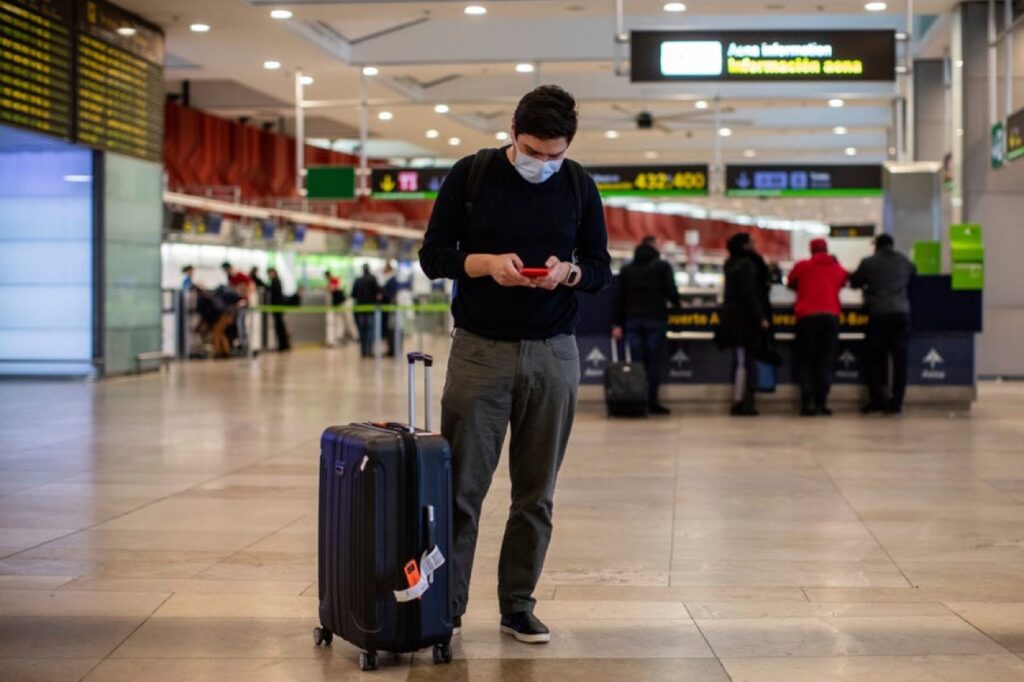The full list of countries to be exempted from the need for passengers to self-isolate for 14 days does not include travellers arriving from the US or from Greece.
Transport secretary Grant Shapps confirmed that people returning to England after trips to Spain, France, Italy and Germany will no longer have to self-isolate from 10th July.
The new policy also applies to tourists visiting England from the exempted countries.
“It is really important that we have done this in a very careful and cautious way,” Mr Shapps said.
“The most important thing is to maintain the gains that we have had.”
The Foreign Office has also updating its advice that warns against “all but essential” international travel, with certain destinations that no longer pose an “unacceptably high risk of COVID-19” from Saturday 4th July.

The existing quarantine measures have attracted widespread derision since their introduction, with critics suggesting they were brought in too late and applied to some countries where coronavirus was not as rife as in the UK.
Under new plans, all passengers, except those on a small list of exemptions, will still be required to provide contact information on arrival in the UK.
The Department for Transport (DfT) said it expects a number of the exempted countries will not require arrivals from the UK to self-isolate.
However the government’s announcement did not guarantee reciprocal arrangements with foreign countries.
Spain, Italy and Germany currently allow entry to most Britons without having to undergo quarantine. However, France has a 14-day quarantine for most people entering the country from the UK.
The DfT said the list of exempted countries will be “kept under constant review, so that if the health risks increase self-isolation measures can be reintroduced to help stop the spread of the disease into England”.
Boris Johnson’s father criticised for flying to Greece during COVID-19 pandemic
It added that the devolved administrations in Scotland, Wales and Northern Ireland will “set out their own approach to exemptions” and urged passengers returning to those countries to “follow the laws and guidance which applies there”.
A row has broken out between Downing Street and Holyrood over air bridges, with Mr Shapps previously saying the Scottish government was delaying an announcement on the issue.
This was dismissed by the Holyrood administration as “completely unfounded”.
And in the wake of the announcement on air bridges, a Scottish government spokesperson has said: “We would still like to reach a four nations approach if possible but that is difficult when the UK government change proposals and give us last minute sight of them.”
The government plans to introduce a traffic light system that would classify countries as safe or otherwise, depending on the prevalence of coronavirus.
Countries will either be graded green, meaning they are safer than the UK; amber, meaning they are less safe than green countries; or red, which will result in any passengers returning from them still needing to isolate for a fortnight.
Rules implemented from 8th June have meant all passengers – with a handful of exemptions – have been required to go into self-isolation for 14 days at a declared address when they arrive in the UK.
Those who fail to comply can be fined £1,000 in England, with police allowed to use “reasonable force” to make sure they follow the rules.
The Airlines UK trade association welcomed news that the quarantine measures would be lifted for certain countries.
It said: “There’s no doubt quarantine has had a devastating impact on our industry and whilst it’s welcome the government has removed its blanket ban we would encourage rigour and science is applied in all future decisions surrounding our businesses.”















